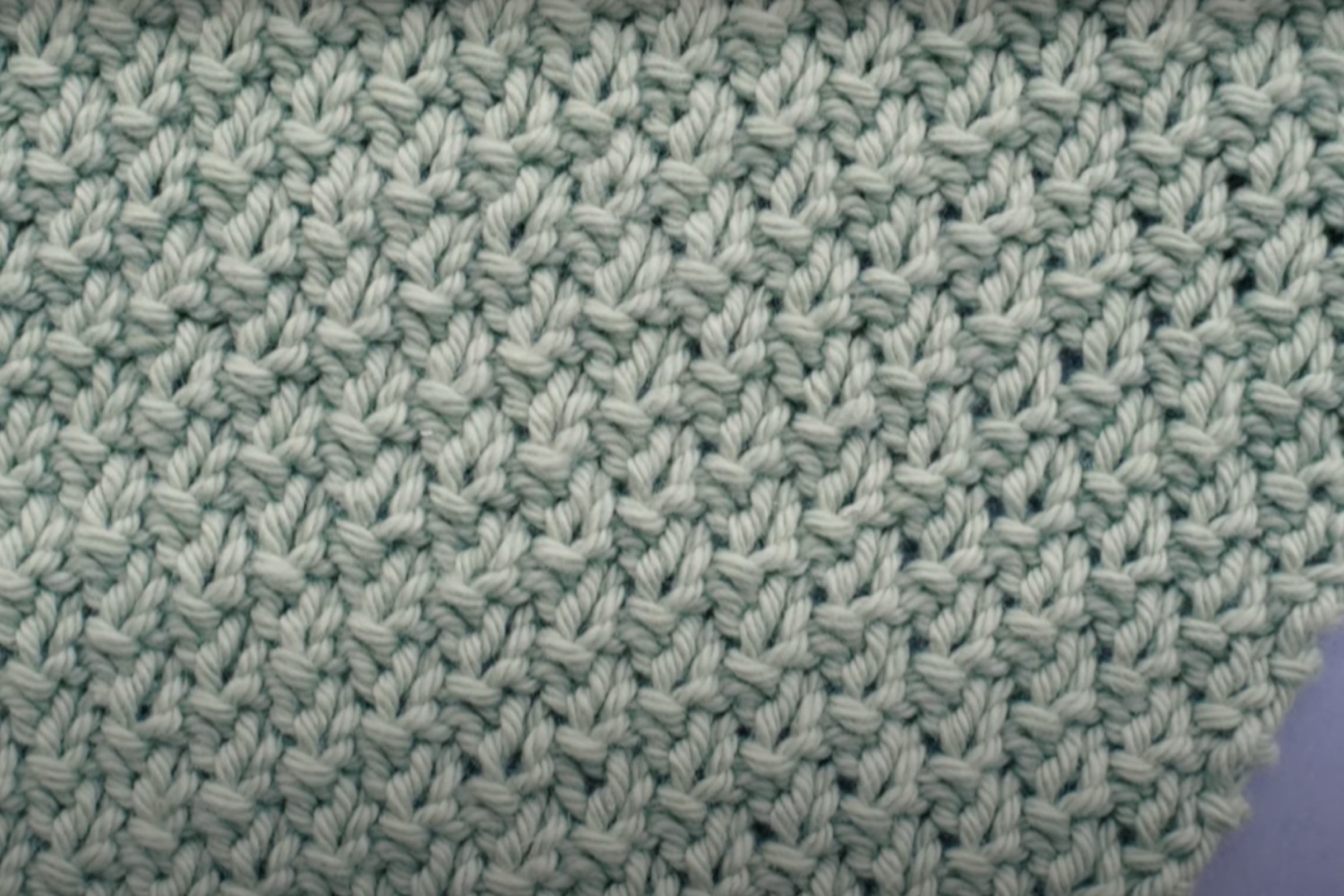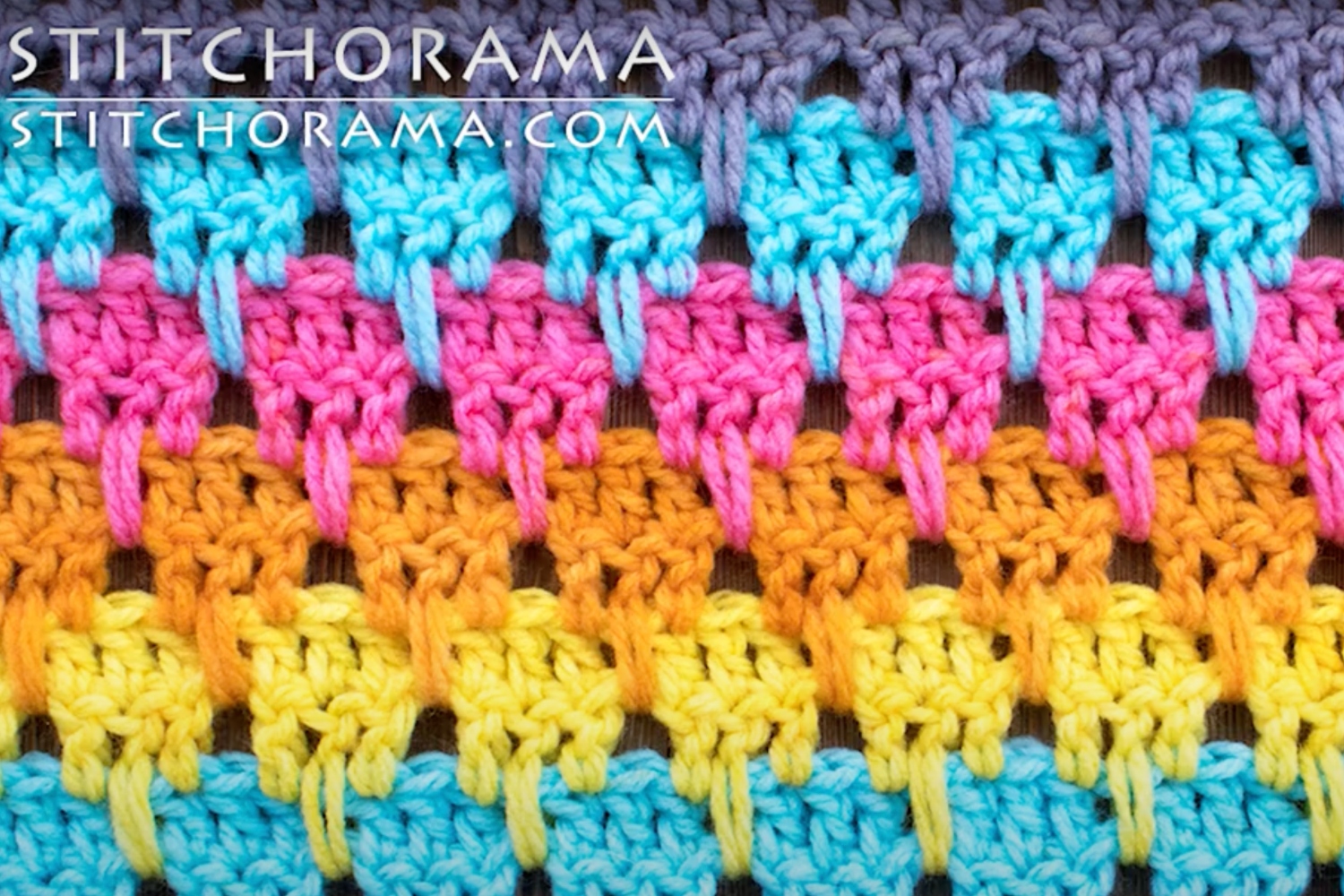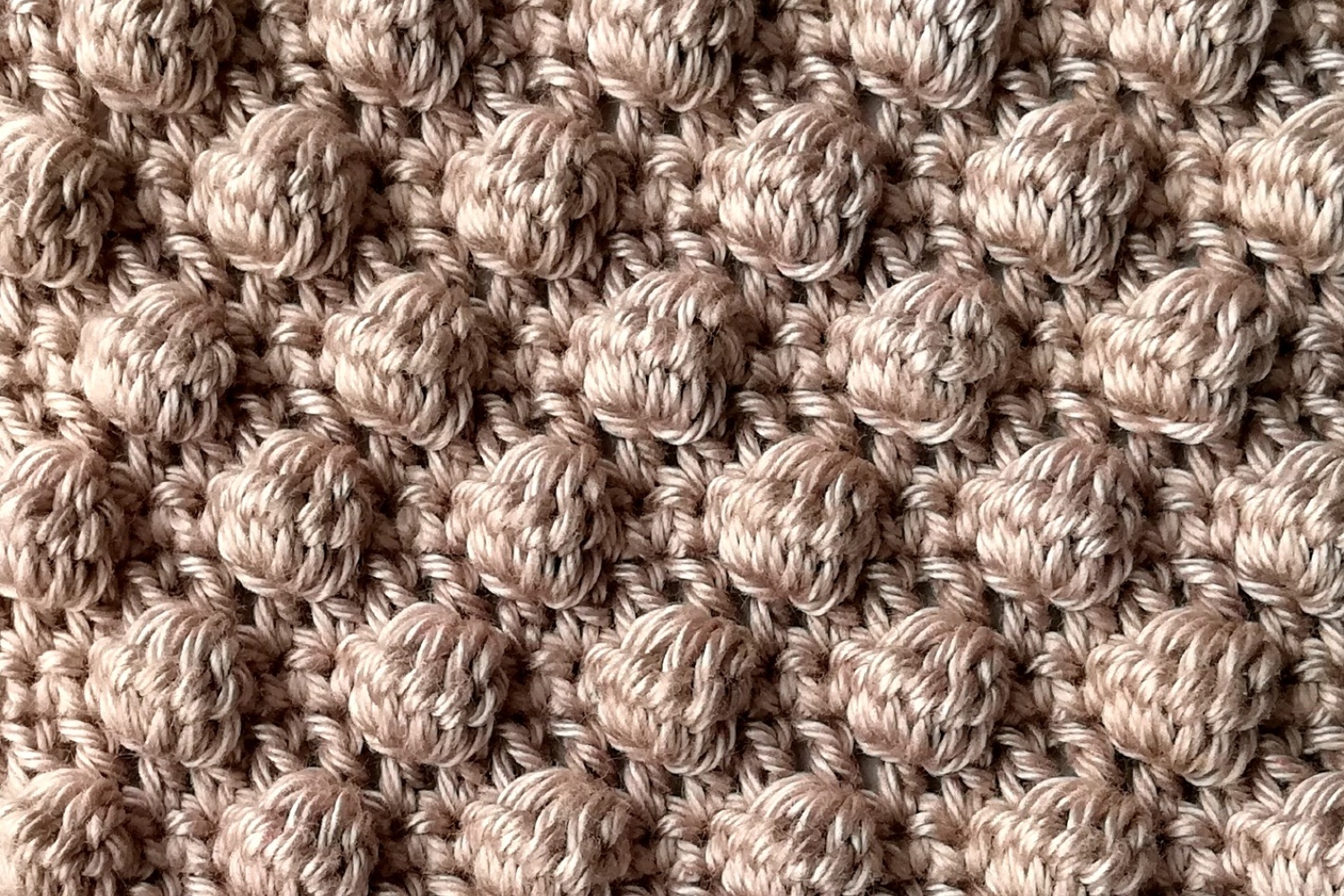In this article:
There is an endless array of possibilities when it comes to creating unique crochet stitches. Each stitch adds its own flair and texture to your projects, making them truly one-of-a-kind. Whether you are a beginner looking to build your technique quiver or an experienced crocheter wanting to expand your stitch repertoire, I will guide you through various easy and advanced crochet stitch patterns.
Learning a new stitch is a fun way to expand your skills when you have no time to focus on a whole project or you are totally out of yarn (I’m joking, I know that is impossible) to start something bigger.
Crochet Stitches Overview
Before diving into the tutorial for crochet stitches, it’s essential to have an overview of the vast library of stitches available. From basic stitches like single and double crochet to more complex stitches such as puff stitch and treble crochet, mastering these stitches is key to creating amazing crochet projects.
Library of Crochet Stitches
Read the post below to learn about variety of stitches you might not have even heard of! The YC library of crochet stitches encompasses a wide range of options, including common stitches that are widely used in patterns and beautiful stitches that add elegance to your work. With the right tutorial from the stitch library, you can learn how to create all of them.
Learning new stitches doesn’t have to be daunting, especially with easy-to-follow tutorials available. Whether you want to master basic stitches like double crochet or expand your repertoire with more complex ones like Tunisian crochet, there are tutorials tailored to different skill levels. These step-by-step guides make it simple for beginners to grasp the techniques and for seasoned crocheters to challenge themselves with new stitch patterns.
Basic Crochet Stitches
Among the easy crochet stitches the most common ones are the single crochet, double crochet, and half double crochet stitches, which form the foundation of many projects. These basic stitches are easy to learn and perfect for beginners looking to build their crochet skills. Additionally, more advance stitches are based on those 6 basic stitches. Here you can find a full review of the Basic Crochet Stitches with an examples of the projects you can make knowing only one of them.
Basic Crochet Stitches:
- Chain Stitch (ch): This is the foundation of most crochet projects
- Slip Stitch (sl st): This is used for joining or moving within a project
- Single Crochet (sc): basic stitch, used in many crochet projects
- Half Double Crochet (hdc): Taller than a single crochet, but shorter than a double crochet
- Double Crochet (dc): a versatile stitch, taller than single crochet (SC)
- Treble (or Triple) Crochet (tr): an even taller stitch used for airy, open patterns
Basic Crochet Stitches are the ones you’ll start when learning how to crochet. Practice them on real projects. Here are some examples of project you can make:

Projects You Can Make Knowing Only A Chain Stitch
Projects You Can Make Knowing Only Single Crochet Stitch
Projects To Practice a Half Double Crochet
Examples of Double Crochet Stitch Projects
Projects To Practice a Treble Crochet Stitch
Chain Stitch (CH)
The foundation of most crochet projects.

Half Double Crochet (HDC)
Taller than a single crochet, but shorter than a double crochet.

Double Crochet Stitch (DC)
a versatile stitch, taller than single crochet (SC).

Treble Crochet Stitch (TR)
an even taller stitch used for airy, open patterns.

Slip Stitch (Sl St)
Used for joining rows and finishing a yarn.

Crochet Stitches For Blankets
To elevate your projects, it’s essential to explore eye-catching and textured stitches. Stitches like the moss stitch and C2C stitches create stunning textures, while the Ripple and Shell Stitch introduce a unique look to your work. Whether you’re making a baby blanket or a blanket pattern, incorporating these beautiful stitches will take your projects to the next level.
Corner to Corner Crochet (C2C)

Worked diagonally, creates a textured, block-like pattern.
Go to the tutorial. When you learn that stitch, you can implement different shapes into your C2C projects e.g. C2C Catghans.
Shell Stitch Crochet Pattern

Creates a fan-like or scalloped pattern.
Chevron Stitch

Creates a zigzag pattern.
V-Stitch

Forms a V shape, often used for lacy patterns.
Granny Stitch

Used in the classic granny square, consists of clusters of double crochets. Granny square blankets come in various styles and designs, each offering a unique aesthetic appeal.
Learn How to Crochet a Granny Square Blanket.
Moss Stitch (or Linen Stitch)

Alternates single crochets and chain stitches to create a woven texture.
Basketweave Stitch

Mimics the look of a woven basket.
Waffle Stitch

Creates a thick, textured fabric.
Larksfoot Stitch

Features elongated stitches that create a colorful, geometric pattern.
Ripple Stitch

Similar to the chevron stitch but can vary in wave height.
Unique Crochet Stitches
Delve into the realm of advanced crochet stitch patterns to push the boundaries of your creativity. These intricate stitches offer a level of sophistication to your projects that will impress both yourself and others. Mastering these advanced patterns will take your crocheting skills to new heights, allowing you to create stunning and complex designs.
Here are some different stitches to try:
Block Stitch

Combines blocks of double crochets and chain stitches to create a textured, checkerboard-like pattern.
Knit stitch (also known as Waistcoat Stitch)

Mimics the look of knitted fabric but is created with a crochet hook.
Suzette Stitch

Alternates single crochets with double crochets in the same stitch, creating a dense, textured fabric.
Granny Stripe Stitch Pattern

This stitch involves clusters of double crochets worked in a row, creating a striped, textured pattern reminiscent of traditional granny squares.
Puff Stitch

Creates a textured, raised effect.
Bobble Stitch

Similar to the puff stitch, but with more yarn-overs for a more pronounced texture.
Popcorn Stitch

Similar to the bobble and cluster stitches but creates a dense, round shape.
Filet Crochet

Alternates solid blocks and open spaces to create images or patterns.
Broomstick Lace

Uses a large knitting needle or broomstick handle to create large, lacy loops.
Hairpin Lace

Uses a hairpin lace loom to create openwork patterns.
Crocodile Stitch

Creates a scale-like texture, often used for decorative projects.
Star Stitch

Forms a star-like pattern, adding texture and visual interest.
Tunisian Crochet Stitch Tutorials
If you like a knit-look for handmade items, you will definitely love Tunisian crochet. Tunisian Crochet (called also Afghan crochet) combines crochet and knit techniques. Using one needle – a long crochet hook with the stopper at the end to hold more loops on the hook, you will work forwards and backwards instead of turning your work.
Here are some of the basic Tunisian stitches:

Speciality Stitches
Speciality stitches are variations of basic stitches.
Post Stitches
Front and Back post stitches are variations of basic crochet stitches. They will beautifully add dimension and more intriguing look to your project. Using a Front or back post technique creates a nice ridge and 3D texture in the easiest way possible.
To learn more, follow the video tutorial.
Front Loop Only and Back Loop Only Stitches
Another variation of the basic stitches are the front loop only (FLO) or back loop only (BLO) stitches. We follow the regular stitches as usual, but instead of inserting a hook into both strands of the yarn, we only grab the first (FLO) or second one (BLO).
To learn more, follow the video tutorial.
Extended Stitches
Like extended single crochet (esc), which adds height to the basic stitch.
To learn more, follow the video tutorial.
Spike Stitch
Involves inserting the hook into stitches from previous rows to create elongated stitches.

To learn more, follow the video tutorial.
Incorporating Different Crochet Stitches
Expand your crochet repertoire by incorporating new stitches into your projects. By learning and mastering stitches like the trinity stitch or the cluster stitch, you can add intricate details and lots of visual interest to your creations. These new stitches will not only enhance your skills but also provide endless possibilities for creating beautiful and captivating crochet pieces.
Tips for Learning New Stitches
Learning new crochet stitches can be an exciting way to build your skills and add variety to your projects. Here are some tips to help you master new skills:
1. Start with the Basics
Master Basic Stitches: Ensure you are comfortable with basic stitches like chain (ch), single crochet (sc), double crochet (dc), and slip stitch (sl st). These form the foundation of more complex stitches.
2. Use Quality Materials
Appropriate Yarn and Hook: Use a smooth, light-colored yarn and a comfortable crochet hook. This makes it easier to see your stitches, work them accurately and adjust as needed.
3. Follow Tutorials
Video Tutorials: Watch step-by-step video tutorials. Visual learning can be very effective for understanding the mechanics of a stitch, as well as learning little tricks and efficiencies..
Written Instructions: Follow detailed written instructions or patterns. Reading through the instructions thoroughly before starting can help you understand the process better.
4. Practice with Swatches
Small Swatches: Practice the new stitch by making small swatches rather than starting a large project. This allows you to focus on getting the stitch right without the pressure of a big project or having to backtrack a lot if something’s not quite right.
Gauge Swatches: For projects requiring specific dimensions, practice making gauge swatches to ensure your tension matches the pattern requirements.
5. Take It Slow
Patience: Take your time and work slowly. New stitches can be challenging, and it’s important to be patient with yourself.
Repeat: Repeat the stitch multiple times until it becomes comfortable and consistent. Repeatability of your stitches is the key to consistent and even projects.
6. Use Stitch Markers
Mark Your Place: Use stitch markers to mark important points in your work, such as the beginning of a round or specific stitch patterns. This helps you keep track of your progress and ensures accuracy.
7. Count Your Stitches
Regular Counting: Regularly count your stitches and rows to ensure you’re following the pattern correctly. This helps prevent mistakes that can be difficult to fix later, when they get blocked in by a large number of following stitches.
8. Practice Consistent Tension
Even Tension: Focus on maintaining consistent tension in your stitches. This helps ensure that your stitches are uniform and your project looks neat.
9. Learn the Stitch Anatomy
Understand Structure: Learn the structure of the stitch you’re trying to master. Understanding how each part of the stitch is formed can help you troubleshoot and master it. Also, when you understand the stitches’ structure, it will be much easier for you to follow diagrams in the future.
10. Use Practice Patterns
Practice Patterns: Use practice patterns specifically designed for learning new stitches. These patterns often include detailed instructions and tips.
By following these tips, you can effectively learn and master new crochet stitches, enhancing your skills and adding more variety to your projects. Happy crocheting!
Common Crochet Questions – FAQ:
What is the most beautiful crochet stitch?
The answer to that question is subjective, each crocheter has their own favourite “signature” stitches. However, one stitch that is widely regarded as particularly beautiful and elegant is the shell stitch. The shell stitch creates a lacy, scalloped pattern that adds a decorative touch to any crochet project. Additionally it is easy to learn even for a beginner crocheter.
What are the 5 basic crochet stitches?
The five basic stitches are essential building blocks for creating a variety of crochet projects. The basic crochet stitches are the chain stitch, single crochet, half-double crochet, double crochet and treble crochet.
What is the most advanced crochet stitch?
Determining the “most advanced” stitch can be subjective, as it often depends on individual skill levels and the complexity of the pattern. However, one of the stitches that is commonly considered advanced due to its intricacy and the skill required to master it is the Crocodile Stitch.
The Crocodile Stitch creates a textured, scale-like pattern that is visually striking and unique. It’s often used in projects like shawls, scarves, and decorative items.
What crochet stitch is used the most?
The single crochet (sc) stitch is one of the most commonly used crochet stitches. It is very versatile and can be used for a variety of projects lie amigurumi, blankets and garments. Additionally it creates a tight and dense fabric without holes. It’s also easy to learn for beginners. Actually, it is a starting point for any crocheter newbie, which makes this stitch even more popular.
What is the simplest crochet stitch for beginners?
The simplest stitch for beginners is the chain stitch (ch). It’s a foundation for many projects. Although you can make a simple item like bracelet using only the chain stitch, to make an item, you will need to use at least one more additional stitch. The next easiest ones are single and half double crochet stitches. You can make a wearable crochet item using any of them.
Here are some examples of crochet projects using single or half double crochet stitches only: 15 Free Single Crochet Patterns for Beginners or Half Double Crochet Beanie.
What is the easiest crochet stitch?
For beginners looking to elevate their crochet projects, starting with simple stitches like single crochet and double crochet can enhance their skills. These basic stitches form the foundation for more advanced patterns and offer a great starting point for new crocheters. As you gain confidence, you can gradually explore other stitches like the waffle stitch or cluster stitch to add complexity and beauty to your creations.
Conclusion
Advance your crochet skills by exploring intricate crochet stitch patterns that challenge and inspire you. Don’t be afraid of new stitches. These days, with the visual tutorials and video, learning new skills is easier than ever. Incorporating new crochet stitches into your projects not only enhances your abilities but also adds a personalized touch that sets your creations apart.




